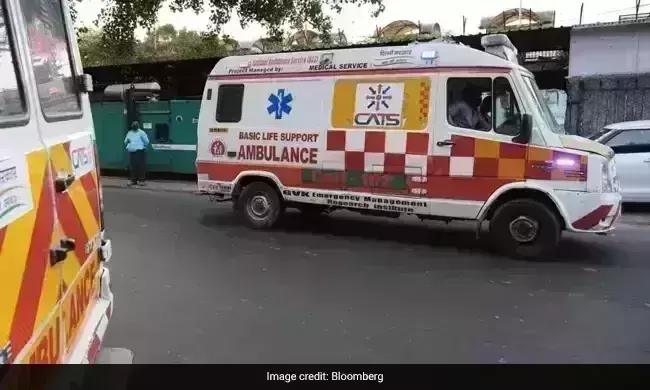
COVID third wave might not be as severe as second wave in India, says Study
text_fieldsThe rapid scale-up of vaccination efforts by India might help to mitigate the potential third wave of COVID, says a study. The study conducted by a team of scientists from the Indian Council Of Medical Research (ICMR) and the Imperial College London, UK also says that a third wave is unlikely to be as severe as the second wave, given the extent of spread that has already taken place in India.
The study also urges to expand vaccination efforts adding that the rollout of vaccine should be in such a way as to cover 40 per cent of the population with two doses over a period of three months following the end of the second wave, which is on the decline currently.
According to the study, at least 30 per cent of the population who had been infected earlier must entirely lose their immunity, or an emerging variant of the virus must have a reproductive rate (R) over 4.5 if the third wave has to be as devastating as like the second wave. This means, each infected person should be spreading to at least 4-5 others and these must occur almost immediately after the second wave ends, according to the study.
The study published in the journal Indian Journal of Medical Research also points outs that extreme scenarios for the abrogation of immunity is required for a virus to cause a major third wave in the face of this pre-existing immunity
In India's case, the second wave of COVID became disastrous because of the emergence of more infectious variants of SARS-CoV-2, principally B.1.1.7 (Alpha variant) and B.1.617.2 (Delta variant). In India, the first wave of SARS-CoV-2 infection began in late January 2020 with a peak attained in mid-September. This phase was relatively mild compared to the second wave that followed, from mid-February 2021 onwards, exhibiting a more explosive spread across the country.
As the country has rolled out a massive vaccination campaign, there is less possibility for a disastrous COVID third wave, according to the study. The study also says that third waves that have already emerged in other countries - like the UK and the USA are driven by a range of factors.
The study also cautions to use the mask and physical distancing during social interactions as they are all key factors shaping transmission rate and therefore population-level spread.
"Lockdown-release mechanisms could be a plausible driver for the third wave in India, depending on how effectively lockdowns have controlled transmission during the second wave particularly when instated at an early stage of the second wave and prior to attainment of a peak," says the study.
The analysis, says scientists, is intended to be illustrative and not predictive.
"In the present approach, we considered essentially a uniform waning rate over the spectrum of severity. Second, the basic reproduction number (equivalently, the rate-of-transmission) was assumed to remain constant during each wave," said the scientists explaining the methodology used in the study.






















